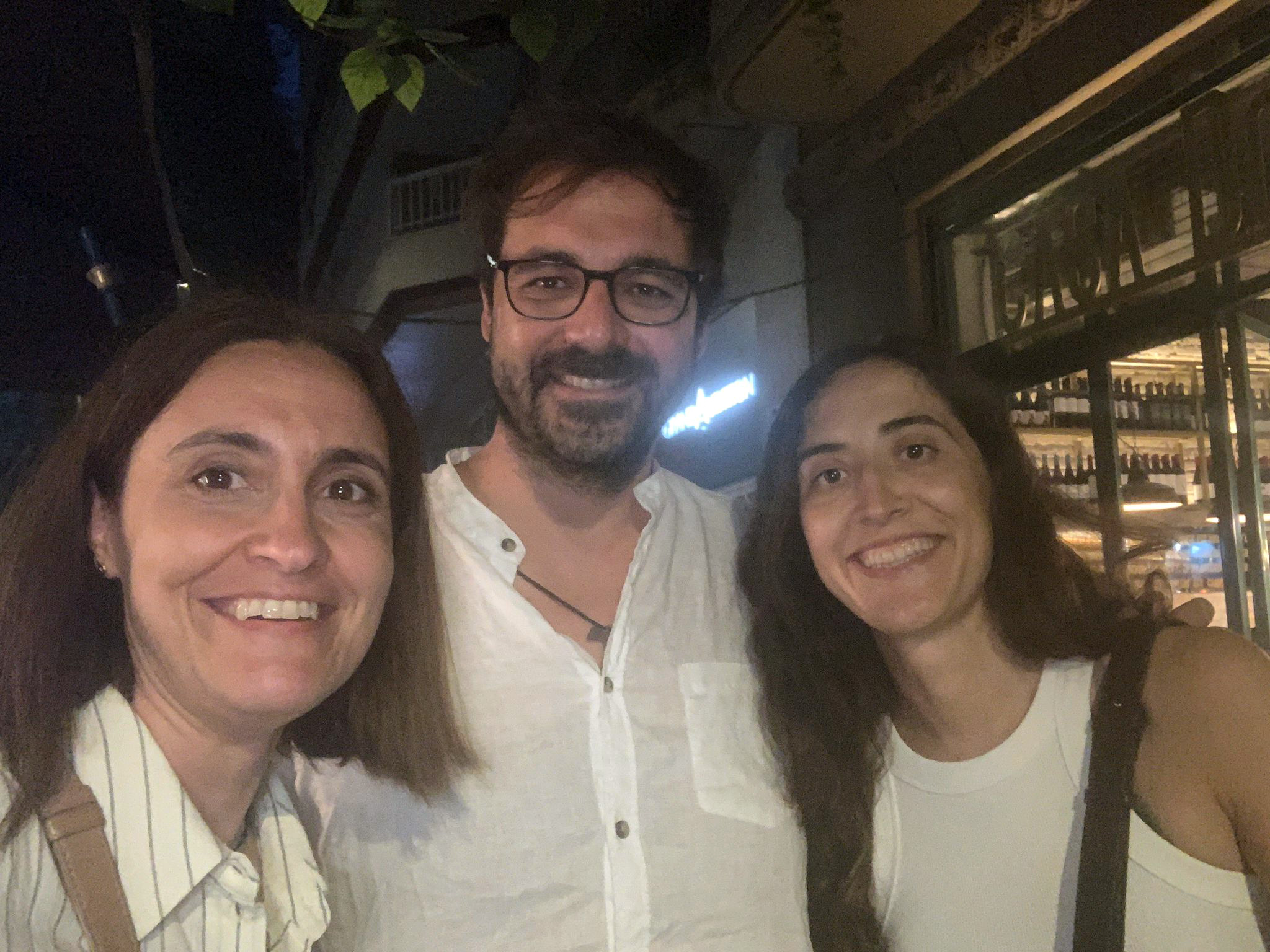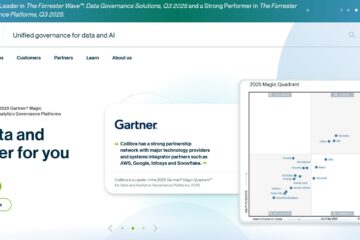INTERVIEW
Sandro Scordo is president of DAMA Portugal and Head of Data Strategy & Governance at BI4ALL

By: Marta Díaz
President of DAMA España
First of all, congratulations on the launch of DAMA Portugal! What inspired you to start the Portuguese chapter?

SANDRO SCORDO:
Hi Marta and everyone in the Spanish Chapter. I’m truly delighted to be here with you today.
My journey with DAMA began a few years ago while I was working in London. I had already been a DAMA-I member for several years and was actively putting the DMBoK principles into practice in my daily work.
Eventually, BI4ALL Data Consulting – a Portuguese company – offered me the opportunity to lead their Data Strategy & Governance Center of Excellence.
Naturally, one of the first things I did was look for a local DAMA Chapter in Portugal… but to my surprise, there wasn’t one.
So, as the saying goes: «If the mountain won’t come to Muhammad, then Muhammad must go to the mountain».
“There’s a widespread need for improved data literacy across the entire organization, especially within leadership positions.
This is exactly where DAMA chapters can make a difference”
What do you see as the main data challenges organizations are facing today and how can a DAMA chapter help address them?
One of the key challenges organizations are facing today is the gap between data investments and tangible business value. Many are quick to adopt new technologies, but without strong foundations in data management — things like clear ownership, data quality, data governance, and a shared language — it’s hard to scale or sustain value over time.
Data silos and fragmentation are another major issue. Different teams manage data in isolated ways, leading to inconsistency, duplication, and a lack of trust in the data.
And finally, there’s a widespread need for improved data literacy across the entire organization, especially within leadership positions.
This is exactly where DAMA chapters can make a difference. By offering a neutral, community-driven space, we help professionals come together to share experiences, adopt best practices like the DMBoK, and elevate the maturity of data management in their organizations.
You lead the Data Strategy & Governance Center of Excellence at BI4ALL. What does your day-to-day work look like, and how do you connect that with your role at DAMA?
My day-to-day varies greatly — no two days are the same. When I’m deployed on a project, I take the lead and I bring it to life.
So I might be running a data maturity assessment, conduct workshops to deliver a data strategy roadmaps, I might be hands on the creation of a Data & AI Governance Framework or playing the role of Enterprise Architect, etc.
When I’m not directly involved in a project, I focus on several other areas: supporting pre-sales engagements, structure projects by responding to RFPs, contributing to marketing initiatives, managing relationships with our strategic partners, and I enable internal knowledge sharing.
“One of the key challenges organizations are facing today is the gap between data investments and tangible business value”
Together with my CoE, I also work on developing what we call “accelerators” — reusable resources and frameworks designed to generate value for our customers.
About connecting this to DAMA. Through DAMA, I get to learn from and collaborate with other data professionals, contribute to industry discussions, and stay sharp on global best practices.
It’s a two-way street: the challenges I see at BI4ALL keep DAMA conversations grounded, while DAMA’s thought leadership helps me bring fresh ideas back to my team.
Plus, it’s a great reminder that good data management isn’t just about rules—it’s about people, trust, and shared knowledge.
From your perspective, how can different DAMA chapters collaborate more?
Any ideas for building bridges between Spain, Portugal, and beyond?
From my perspective, stronger collaboration between DAMA chapters—particularly between neighboring ones like Spain and Portugal—can significantly amplify our impact across the EMEA region. There are several practical and strategic ways to build these bridges:
1. Joint Projects & Sector Benchmarking
Working on collaborative projects, such as sector-specific data management benchmarking (e.g., Healthcare, Financial Services, Public Sector), can be a powerful way to combine expertise and generate actionable insights. By pooling data and best practices across countries, we can create valuable cross-border reference models that benefit members and stakeholders alike.
2. A Space for Continuous Idea Exchange
Establishing regular forums—virtual or hybrid—for idea sharing between chapters can foster innovation. This could include roundtables, innovation sprints, or even informal monthly “coffee chats” where leaders and members share what’s working (and what’s not) in their national contexts.
3. Co-hosted Events & Programs
We can co-design and co-host events, such as webinars, certification bootcamps, or “Data Week” conferences that rotate locations annually. This not only strengthens regional cohesion but also gives members access to broader professional networks and exposure to different cultural and regulatory contexts within the EMEA region.
4. EMEA Coordination as a Bridge Builder
The EMEA coordination team plays a critical role in facilitating collaboration across chapters. They can help set shared goals, provide guidance on joint initiatives, and maintain a calendar of regional activities. Leveraging their role as connector and enabler is key to ensuring consistency, alignment, and mutual support between chapters.
Ultimately, the success of our collaboration depends on open communication, trust, and a shared vision of elevating data management maturity across our region. Together, we can make DAMA not just a network, but a movement.
Looking ahead, what are your top priorities for DAMA Portugal in 2025?
Looking ahead to 2025 and part of 2026, our top priority at DAMA Portugal is to open to new members. Then the focus will shift onto becoming the go-to resource for data management professionals in the country. We’re focusing on developing and curating our website and social media presence to keep our community informed and engaged.
A key objective is to foster a strong, active community that enables networking and knowledge sharing. We plan to host a range of events—workshops, webinars, and conferences—that dive deep into relevant data topics.
We’ll also continue growing our membership base, building partnerships with other DAMA chapters and external organizations, and securing sponsorships to support our initiatives.
Education is central to our mission—we aim to launch programs in collaboration with academic institutions and promote diversity by supporting women in data management.
2025 will be about make a start, then growth, collaboration, and delivering value to the Portuguese data community.
Lastly, any advice for data professionals trying to break into governance, stewardship, or data strategy roles?
- Invest in your listening & communication skills
- Be curious
- Read the DMBok!
Bonus – Rapid Fire
(One-word or short answers!)
- Favorite data principle?
→ Data management must be pragmatic: Don’t Boil the Ocean!
- Book you recommend?
→ DMBoK?! The v3 is coming and it will be a greatly improved one!
- Coffee or tea?
→ An Italian cappuccino to start the morning, a smooth British decaf latte in the afternoon, and on weekends—a rich café con leche or a creamy meia de leite!
- Structured or unstructured data?
→ Let’s embrace the diversity of both of them



